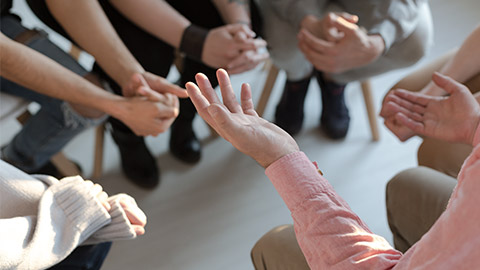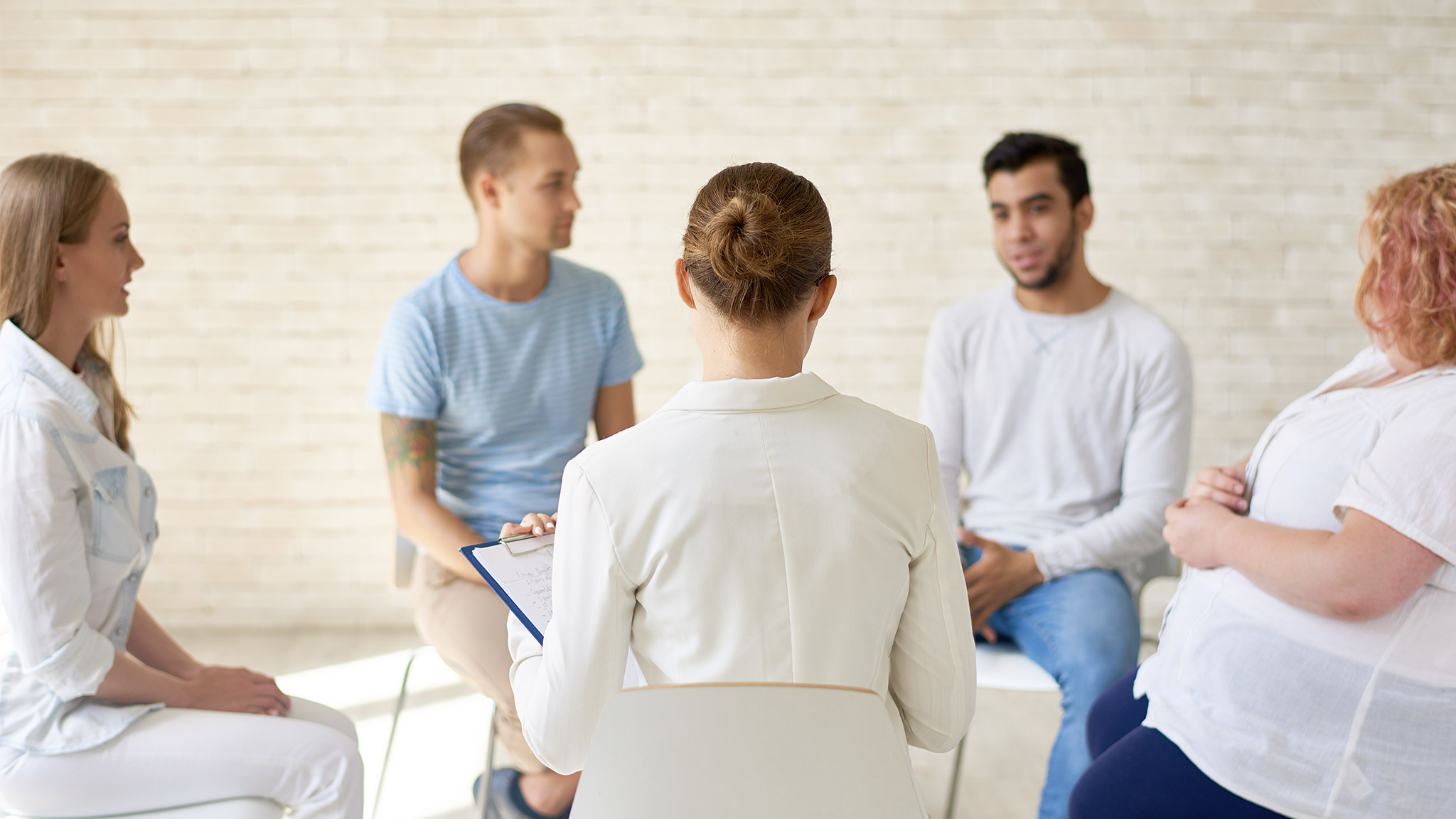Macnamara, N., & Mitchell, J. (2019). Practice guide: Reflective Practice: Enhancing Practice in Therapeutic Care. https://www.deai.com.au/wp-content/uploads/2020/01/Practice-Guide-Reflective-Practice-Enhancing-Practice-in-Therapeutic-Care-.pdf
Sometimes it’s difficult for staff to develop a critical perspective of their own practice. The dynamic and team environments of therapeutic care make team or group Reflective Practice extremely useful forums for the sharing and exploration of issues and situations that arise in the care of young people. Group processes often help bring a range of perspectives into the discussion and aid the generation of meaning making, new ideas and strategies for moving forward. Team or group discussions also help in the exploration of values and assumptions that are underpinning how the practice is enacted.
There are many tools and resources available to help guide Reflective Practice. What they all have in common is a process that enables you to look back or observe what happened, reflect and learn, and identify and apply a different approach next time. This section will introduce you to Kolb’s Experiential Learning Cycle.
Kolb’s Experiential Learning Cycle
Kolb’s Experiential Learning Cycle (1984) is a well-known theory which is based on the notion that we learn from our experiences of life, even on an everyday basis. It treats reflection as an integral part of such learning. According to Kolb, the process of learning follows a pattern or cycle consisting of four stages, one of which involves what Kolb refers to as ‘reflective observation’. The stages are illustrated and summarised below:
Each stage if the cycle is further explained below.
Life is full of experiences we can learn from. Whether at home or at work or out and about, there are countless opportunities for us to ‘kick-start’ the learning cycle.
Reflection involves thinking about what we have done and experienced. Some people are naturally good at this. Others train themselves to be more deliberate about reviewing their experiences and recording them.
When we pass from thinking about our experiences to interpreting them we enter the realm of what Kolb termed ‘conceptualisation’. To conceptualise is to generate a hypothesis about the meaning of our experiences.
In the active experimentation stage of the learning cycle we effectively ‘test’ the hypotheses we have adopted. Our new experiences will either support or challenge these hypotheses.
To learn from our experiences, it is not sufficient just to have them. This will only take us into stage 1 of the cycle. Rather, any experience has the potential to yield learning, but only if we pass through all Kolb’s stages by reflecting on our experiences, interpreting them and testing our interpretations.
Summing up, learning from our experiences involves the key element of reflection. Obviously, most people don’t theorize about their learning in this way, but in their learning follow Kolb’s cycle without knowing it.
A Practice Example
What follows is a reflective process that Peter, a staff member, went through following an incident with James, a 16-year-old young person.
Concrete Experience - About James
I was on shift when James came out of his room. He looked agitated and was moving around the lounge room in a predatory way. He appeared to be looking for an opportunity to create an issue/problem. I spoke with James. I asked him if he was “alright”. James ignored me. I moved closer to him and asked him if he wanted to sit down or go outside and use the trampoline. James stared at me and swore.
The other young people were looking concerned.
I asked James not to speak to me like that. He said: “get out of my face or else”. I asked him if he was threatening me. He said: “you’ll find out”.
I turned my back on James to ask the other young people to leave the lounge room and he pushed me in the back and I fell forward over a coffee table. James picked up an ornament which he threw and smashed a window.
Observation and Reflection
What observations and reflections did I take away from this experience?
- Following the incident, I was concerned about how I had approached James and how it had escalated so quickly.
- I reflected on whether I should have checked with the other team members if they knew any reason why James was agitated.
- I wondered if following James was helpful or unhelpful. Did he experience this as a threat? Would it have been better to give him more room?
- Should I have ignored him when he swore at me? Was I concerned how the other young people would view me if I let him get away with speaking to me like that?
- Turning my back on him was a mistake. Did James see it as an opportunity or a rejection of him?
Formation of Abstract Concepts and Generalisations
What abstract concepts and generalisations did I take from this experience?
- Young people who have had adverse experience involving trauma can see threat where it does not exist.
- The stress response system is automatic and the young person’s system is geared-up for the fight or flight. James was ready to fight.
- Fear is contagious and the other young people’s stress response systems were becoming gearedup to defend themselves.
- Challenging young people who are outside their ‘window of tolerance’ is unhelpful. De-escalating is more helpful.
- Turning away from a young person who is highly escalated is dangerous.
Testing the Implication
What are the implications for new situations?
- I will always make sure I am as aware as possible of how each young person is travelling at the beginning of a shift.
- I will find out from other staff how they have previously dealt with James in similar situations with success and try those strategies.
- I will make myself aware of any de-escalation techniques that the young person has been using to help in difficult situations.
- I will not take personally comments made by a young person.
- If a situation is escalating there needs to be another member of staff to take care of any other young people who are present.
Activity: Reflecting on your practice
Support staff to think of a situation that they found difficult when they first attempted it, such as their first time on shift, meeting a new young person who was being difficult or an incident that was complex and challenging.
Use the stages in Kolb’s cycle of learning to help them to reflect on what happened. Using the questions below, try to recall what emotions, thoughts of reflections the situation prompted in them and what they learned from the experience. How would they deal with a similar situation the next time they encountered it?
- Describe the Concrete experience.
- What observations and reflections did you take away from the experience?
- With abstract concepts and generalisations might you formulate?
- What are the implication for new situations?

The following questions will help you get started in facilitating the Reflective Practice session. You will be able to generate many more questions.
- Tell me about what happened?
- What did you feel at the start?
- Describe your feelings?
- What feelings/thoughts/ideas did you feel during ………?
- What patterns did you see? Any links to historical information you have seen, any new information?
- What did you think the young person was feeling?
- How can we understand what was going on the for the young person in that moment?
- What are the possible triggers or lead up to the situation?
- Any factors that influenced your feelings for example gender or race?
- Where and when did you feel least/most comfortable?
- Any change/similarities/difference since last encounter with the young person?
- What aims/outcomes were not achieved?
- What do you need to revisit or feel is not known? 36
- Define your role/organisation role?
- How do the young people define your role?
- What went well, or not well, and why?
- How would you describe the power relationship?
- Has your thinking changed, if so why?
- What areas of further assessment/resources are required?
- What bits of theory, training, research, policy or values might help you make sense of what happened?
- What are the current strengths, needs, and risks for the young person/people?
- How do we observe, listen and critically review what is happening through the day?
- What is the rationale behind our practice?
- Is the practice consistent with our beliefs, values and service philosophy?
- Does our practice foster respect for and inclusion of all young people?
- How do we monitor and change our practice?
- What theories inform our thinking?

